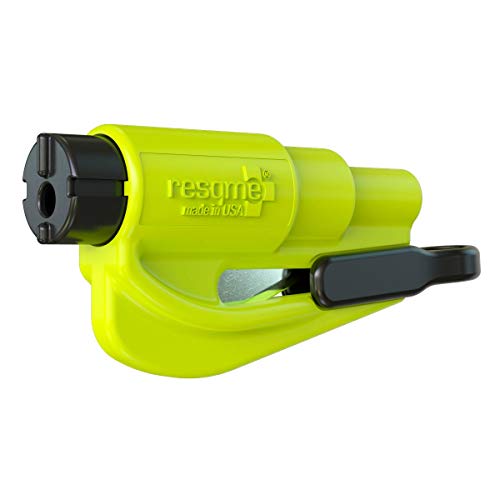Can Vinegar Hurt Car Paint? Myths Debunked!
Vinegar can potentially harm car paint if left to dry in direct sunlight or over a long period of time. While vinegar is great for household cleaning, it is not recommended for use on cars as its acidic properties can eat away at the paint or protective coatings.
It is important to dilute vinegar before using it on car paint and to only use it when necessary to remove stubborn dirt or stains. Vinegar is a popular and versatile household cleaner known for its effectiveness in removing stains and dirt.
However, when it comes to using vinegar on car paint, caution must be exercised. While vinegar can be a safe and effective cleaner for many surfaces, it can potentially harm car paint if not used properly. In this blog post, we will explore the effects of vinegar on car paint and provide guidance on how to safely clean your car without causing damage. So, if you’re wondering whether vinegar can hurt car paint, keep reading to find out the answer.
Vinegar And Car Paint: The Surprising Truth
When it comes to vinegar and car paint, there is a surprising truth that many people may not be aware of. Vinegar’s chemical composition can actually be harmful to car paint. The acidic properties of vinegar can eat away at the clearcoat and manufacturer-applied protectants, especially if left to dry in direct sunlight or for a long period of time. While vinegar can be a great household cleaner, it is strongly advised against using it on your car. Over time, vinegar can cause damage to the metal or paint of your vehicle.
However, it’s worth mentioning that white vinegar, when diluted, can be used as a multi-purpose cleaner for various surfaces, including the exterior of your car. When used in a diluted form, white vinegar won’t damage your car paint. It’s important to avoid using it regularly and only when there is stubborn dirt that won’t come off with regular cleaning methods.
In conclusion, while vinegar can be an effective cleaner for many purposes, it’s best to avoid using it on your car’s paint to prevent any potential damage.
Debunking Common Myths
Rumors around vinegar’s corrosiveness have led to the question of whether it can harm car paint. The reality is that while vinegar is acidic, when diluted, it won’t damage your car paint. However, it’s essential to avoid using it regularly and only apply it when dealing with stubborn dirt. It can effectively and safely remove water spots and mineral deposits. When mixed with water and soap, it’s commonly used as a mild waterspot remover for paint and glass. It’s important to note that vinegar will remove most or all of your wax, so the affected area will need to be redone. Overall, while vinegar has its uses in car cleaning, it’s crucial to use it cautiously to avoid any potential damage.
The Science Of Vinegar On Automotive Paint
The science behind the effects of vinegar on automotive paint is important to understand. Vinegar is an acidic solution, and when it comes into contact with car surfaces, it can have an impact. The clearcoat, which is a protective layer applied to cars, plays a crucial role in safeguarding the paint. However, vinegar can eat away at the clearcoat and any manufacturer-applied protectants if it is left to dry in direct sunlight or for a prolonged period of time. While vinegar is often used for household cleaning, it is strongly advised against using it on your car. The acidic properties of vinegar can gradually corrode metal or damage the paint. Therefore, it is best to avoid using vinegar regularly on car paint and only use it when there is stubborn dirt that needs to be removed.
Real-life Experiences With Vinegar
Some car owners have shared their real-life experiences with vinegar on auto detailing forums. Many have provided testimonials about using vinegar to remove water spots and mineral deposits from their cars. According to their feedback, using diluted white vinegar did not harm their car paint. However, it is important to note that vinegar’s acidic properties can potentially damage the clear coat and manufacturer-applied protectants if not used cautiously. While some have used vinegar in combination with water and soap for cleaning without any negative effects, it’s advisable to be cautious when using vinegar on car paint.
Best Practices For Using Vinegar Safely
When using vinegar on car paint, it’s crucial to dilute it to avoid damage. Mix one part vinegar with nine parts water for a safe solution. Apply the mixture to the surface and promptly rinse it off. Avoid letting the vinegar solution dry on the paint. Additionally, only use vinegar on specific areas and for targeted tasks, such as removing water spots. Always follow up with a thorough car wash and wax to maintain the protective layer of the paint. By following these best practices, vinegar can be used safely without harming the car’s paint finish.
Risks Of Improper Vinegar Use
Vinegar is a versatile cleaning agent that can be used for household cleaning, but it can potentially cause long-term damage if used improperly on car paint. Vinegar’s acidic properties can eat away at clearcoat and manufacturer-applied protectants if left to dry in direct sunlight or for a long time period, leading to potential damage. Additionally, it can have immediate effects on wax and sealants, stripping them away if left on for too long. However, when diluted, white vinegar can be safely used to remove water spots and mineral deposits from car paint without causing damage. It is important to avoid using vinegar regularly and only use it when there is dirt that won’t budge, as it can still cause damage over time.
Professional Insights On Vinegar As A Cleaning Agent
Many car owners wonder if vinegar can be used as a cleaning agent on their vehicles. While vinegar is a versatile multi-purpose cleaner that can effectively remove water spots and mineral deposits, it can also be harmful to car paint if not used correctly.
According to experts, vinegar’s acidic properties can eat away at clearcoat and manufacturer-applied protectants if left to dry in direct sunlight or for a long period of time. However, when diluted properly, white vinegar can be a safe alternative eco-friendly cleaner for car exteriors and upholstery.
It is important to note that vinegar should not be used regularly on cars, and it is recommended to only use it when there is dirt that won’t budge with regular car soap. Additionally, if you are looking for other eco-friendly alternatives, there are many products available in the market that are specifically designed for car cleaning and won’t harm the paint or metal over time.
Conclusions: Vinegar’s Role In Car Care
Using vinegar for car care can be a controversial topic. While it can remove water spots and mineral deposits safely, it’s important to use it sparingly. Vinegar’s acidic properties can potentially damage the car’s paint and clearcoat if left on for too long or used regularly. Neutralizing any vinegar residue with car soap can help minimize the risk. Overall, it’s best to use vinegar as a last resort for tough dirt and mineral deposits, and to ensure it’s diluted and used carefully to avoid any potential damage to the car’s paint finish.
Conclusion
While vinegar can be a useful household cleaning agent, it is not recommended for use on car paint. Vinegar’s acidic properties can eat away at the clear coat and manufacturer-applied protectants, causing damage over time. While some sources suggest that diluted white vinegar can be used safely to remove water spots and mineral deposits, it is best to err on the side of caution and stick to car-specific cleaning products.
Protect your car’s paint and avoid the potential for costly damage by avoiding vinegar as a cleaning agent for your vehicle.






